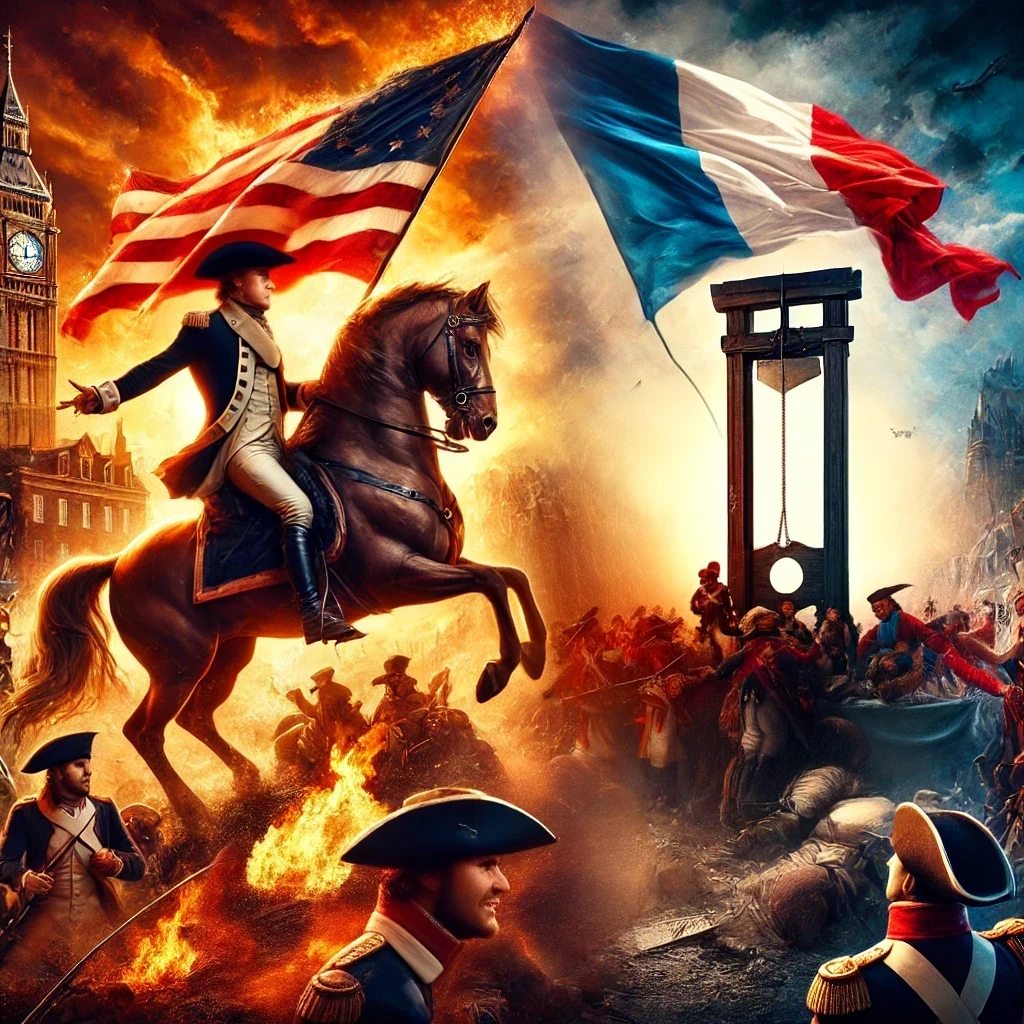The Atlantic Revolutions
The American Revolution and the French Revolution

The second half of the 18th century saw profound changes in Europe and the Atlantic colonies. The American and French Revolutions, inspired by the Enlightenment, introduced new ideals of freedom, equality and self-determination. - Image created by AI
The second half of the 18th century marked a period of radical change in the social, political, and economic structures of Europe and its colonies along the Atlantic Ocean. The American Revolution (1775–1783) and the French Revolution (1789–1799) were events of great historical significance. Inspired by the Enlightenment of the 18th century, these revolutions sparked the emergence and spread of new ideals in the Euro-Atlantic world: liberty, equality, popular emancipation, and the self-determination of peoples.
The Thirteen American Colonies, which would eventually form the nucleus of the United States, organized a continental army of patriots and prepared to fight for their freedom against the larger and better-trained British forces. General George Washington, the future first president of the United States, led the patriots to victory, and the United States established itself as a new beacon of liberty in the world.
The French Revolution followed just a few years after the American one, and the two are so closely linked that they are often collectively referred to as the "Atlantic Revolutions." However, the outcome of the French Revolution was far more dramatic than that of its American counterpart. France descended into a regime of terror, symbolized by the guillotine, which was used not only against the aristocracy but also against individuals from all social classes who opposed the revolutionary government. The collapse of the revolutionary government paved the way for Napoleon's rise and the establishment of his new French imperial project.
Despite their different outcomes, the Atlantic revolutions made an incredible contribution to humanity in the fields of social rights, the downfall of old monarchies, or their radical reform. This era marked the birth of fundamental concepts, which were not yet clearly defined at the time, such as citizenship, political rights, civil rights, suffrage, and self-determination.
Janet L. Polansky, Revolutions without Borders, Yale University Press, 2015.
J.A. Goldstone, Revolution and Rebellion in the Early Modern World, Berkeley, University of California Press, 1991.
Jack A. Goldstone, Tra vecchio e nuovo: le rivoluzioni atlantiche in una prospettiva globale, Contemporanea, January 2007, Vol. 10, No. 1 (January 2007), Il Mulino.
Toniatti Francesco - Professor of History and Oriental Studies, Master of Arts in International Relations
2025-08-02
Salvatore Ciccarello
